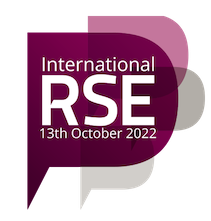What does the role of Research Technology Professional mean to King’s Digital Lab?


This is the third installment of a blogpost published for International Research Software Engineering Day integrating and extracting from our response to the Arts and Humanities Research Council (AHRC) consultation this summer on what the role of Research Technology Professional (RTP) means to King’s Digital Lab. Research Software Engineering profiles are a category within RTPs so our response was based on the KDL experience of inhabiting those roles.
Part 3
This follows on from the first and second in the series. Whilst there is no need to read in sequence, it might be helpful for context.
Questions 4 and 5 of the AHRC consultation ("address the pillars of the Technician Commitment"; skills requirements and development needs) offer the opportunity to address issues of visibility and recognition, career development and sustainability.
There are biases in the Arts and Humanities (A&H) around technical contributions which are often perpetuated through the contractual and career progression inequalities of institutional Research Technology Professionals (Smithies, ffrench and Ciula, forthcoming); in addition, appropriate frameworks for credits and acknowledgement should be drafted or adopted when already existing (e.g. see the recent KCL Fair Publication policy) across the whole lifecycle (from application stage to publication).
Issues around staff recruitment and retention need to be considered. A meaningful investment in human expertise would mean, for example, offering funding schemes where RTPs (including Research Software Engineers) can act as applicants and which Higher Education Institutions (HEI) can use to retain and enhance their RTPs workforce. We can see at least two related strands to achieve this:
1. Infrastructural mindset
The scope of such funding should be to provide infrastructural support across research projects (or A&H research case studies) rather than for single projects and solutions. This is essential in order to move from developing "in point" solutions (e.g. single digital edition) to scaling up data models, software modules, data processing workflows, and data visualisations etc. These could then in turn be re-used and adapted to support new research projects but also, crucially, to enhance the RTPs profile leading the research technical agenda.
2. Professional roles
The objective of this support would be to professionalise RTPs in A&H through offering fellowships, secondments, mobility (not only across HEIs, but also IROs, GLAM and industry sector when applicable) and other pathways to career development in order to create talent pipelines as well as specialised RTPs within A&H. This investment would build on HEI's institutional complementary strengths rather than forcing HEIs to compete for scarce talent. It would help to keep the RTP offer within HEIs attractive, compared to the industry and overseas RTP careers landscape offers.
Collaboration with institutions to make roles stable and create career pipelines as well as opportunities for across-sector exchange and training as outlined above would be needed.
Specialised training
Investment in human expertise could include funding to support specialised training suited to RTPs in A&H. While RSEs are trained in suitable courses such as engineering, UK UX design programmes etc., arguably, A&H perspectives could inform the training of research software analysts profiles acting as mediators, brokers, specialists in bridging A&H research expertise with RTPs expertise e.g. in:
- defining and prioritising technical requirements
- unpacking the complexities of a research domain/context
- identifying opportunities for innovative infrastructural solutions beyond the single research project
Part 4 will be the end of the series with a focus on our understanding of Equality, Diversity and Inclusion issues affecting RTP based on KDL experience.
